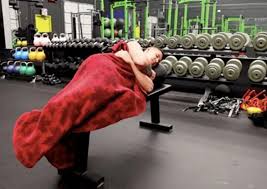You can lift heavy, hit every METCON, and eat the perfect macros; however, if your sleep is garbage, all that effort is fighting an uphill battle. Sleep isn’t just downtime; it’s when your body rebuilds, your brain resets, and your hormones get back on track. Yet most people treat it like a luxury instead of a cornerstone of performance, recovery, and overall well-being. Let’s break down why sleep is so critical and how you can optimize it to get the most out of your training and life.
Why Sleep Matters for Recovery and Performance:
- Muscle Repair and Growth: During deep sleep, your body releases growth hormone, which stimulates muscle repair and growth. That means the work you put in at the gym gets converted into actual strength and size while you’re catching Z’s. Skip sleep, and your muscles are left playing catch-up.
- Energy and Performance: Poor sleep decreases glycogen storage in your muscles, lowers endurance, and reduces power output. Ever tried a heavy squat after a night of tossing and turning? Yeah, it doesn’t feel great. Consistent, quality sleep primes your body to perform at its peak.
- Mental Sharpness and Motivation: Training isn’t just physical—it’s mental. Sleep impacts focus, reaction time, and decision-making. If you’re groggy and brain-fogged, your technique suffers, RPE miscalculations happen, and workouts become less productive.
- Hormone Regulation: Sleep affects cortisol (stress hormone), insulin sensitivity, and appetite-regulating hormones like ghrelin and leptin. Lack of sleep can make your body hold onto fat and crave junk food, even if you’ve been “perfect” in the kitchen all day.
Practical Steps to Level Up Your Sleep:
Optimizing sleep doesn’t require a full lifestyle overhaul. Start with these small, actionable steps:
- Cut caffeine by 2pm: That afternoon latte might be killing your ability to fall asleep later.
- Dim the lights an hour before bed: This signals your brain that it’s time to wind down.
- Keep your bedroom cold and dark: Ideal sleep temperature is around 65°F, and darkness triggers melatonin production.
- Ditch the doom-scrolling: Phones, TikTok, and blue light in bed mess with your circadian rhythm. Try reading, stretching, or meditating instead.
- Stick to a consistent schedule: Going to bed and waking up at roughly the same time daily helps your body regulate sleep cycles.
Bonus Tip: Track how you feel after different amounts of sleep. Even small improvements, like going from 5 hours to 6.5 hours consistently, can make a huge difference in performance, mood, and recovery.
Conclusion:
Sleep isn’t optional if you’re serious about your health, fitness, and overall life performance. It’s the free, underrated tool that supports everything else you’re doing in the gym and in your daily life. By making sleep a priority, you’ll see better recovery, improved strength, sharper focus, and even better nutrition habits. Treat it as seriously as any WOD, and your body (and brain) will thank you.
Curious about how we can help you reach your goals? Book your No Sweat Intro today to get an in-person tour and chat about how we can support your nutrition and fitness journey.

